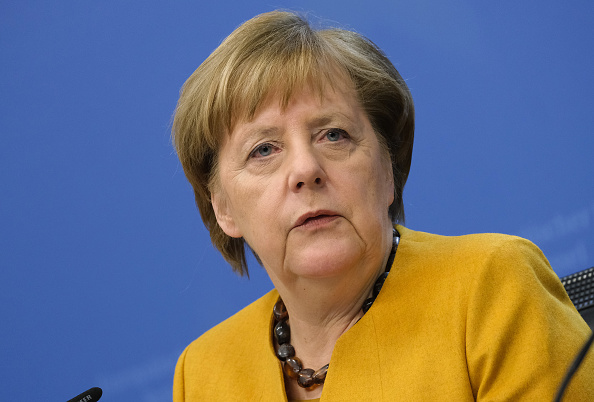What makes me chuckle about the Brexiteers is how little they understand the German mindset. Here in Germany, the European Union is a religion. It is ingrained so heavily in the DNA of nearly every German citizen that any reasoned argument to counter its domination, or challenge its direction, is swiftly dismissed. The integrity of the EU – its unity, identity, money and rules – is central to German identity. That’s why they’ve maintained such a tough stance over Brexit.
The Germans have been very good to me as a musician in Berlin over the past decade. But on Brexit, I am reminded that I am still deeply British. In recent weeks I have had a series of informal meetings and discussions with parliamentarians and officials on all political sides in Berlin. From those conversations, what’s clear is that the Germans think the British people want to remain in the EU but they just do not realise it yet. This explains the messy negotiations, the chaos of which (the Germans hope) will persuade the UK to change its mind. There is zero respect for the British position right now (although Theresa May’s embarrassing antics are not exactly helping) and zero understanding of why Brits might vote to leave.
But we have to see where this approach comes from. First, the culture of discourse and debate in Germany is not like in the UK (which is why people here view the mess of the House of Commons with contempt rather than with admiration for a healthy democracy). Germans fear that the forceful expression of opinion can be deemed dangerously persuasive, especially when charismatic rhetoric can so easily manipulate the emotions of listeners. Second, nationalism is a dirty and often misunderstood word (thanks to National Socialism). Generations of school children have been brainwashed into thinking that the EU project is integral to German national identity, thankful for the role Europe has played in uniting a new and prosperous Germany. Putting the two together, one begins to understand that the EU project has replaced national love.
I call this a religion because there is no tolerance for an alternative political vision. The groupthink mentality of liberal Germany means that EU loyalty is unquestioned. The rise of extremist parties (such as the AfD) is evidence of the Germans’ reluctance to debate this.
Indeed, this EU piety has made Germans so blind to the causes of Brexit that they now risk the whole EU project falling apart.
No one that I’ve met here actually wants to know why Brexit happened. They prefer to think of Brexiteers as crazy, delusional, far-right radicals who want to go back to the old days of Empire (and believe me, the Empire is brought up – no joke – by every single German I speak to about Brexit), or simply as idiots believing the lies of Boris Johnson and Nigel Farage (the two are usually mentioned in the same sentence, with no awareness from the utterer that the two men ran different campaigns). There is no sense here of humility or responsibility for what has happened, nor an idea of how sophisticated the motivations behind Brexit are.
Everyday I hear how Brexit can only be a mess. Yet my Berliner friends forget that 40 years of laws and regulations will always be difficult to break free from – it is precisely this mess that proves just how deeply ingrained the EU is in nearly everything Brits do. My friends also cannot understand how, to properly represent voters, there might be a limit to the institutional layers placed between the voters and those in power, of which the EU adds many. This is because the idea of nationhood and federalism in Germany is – and has been ever since WW2 – wholly different to that of the seafaring British.
Today, it is easy to understand what the EU does for Germany, especially economically. In their Nietzschean nature, the Germans are fiercely competitive. It’s something I like about them very much. When it comes to global politics, the EU allows Germany to call the shots while masking the country’s true power. Before Brexit, the major powers seemed balanced. By leaving the EU, Britain exposes German dominance whilst challenging the status quo. It is this challenge that makes most Germans I know vindictive about Brexit: to the detriment of friendship, they would prefer any future deal to be a deterrent to other nations that might think of leaving their very convenient club.
Of course, my dear Germans friends are not the only ones that lack patience for alternative ideas. Vast swathes of the liberal ruling EU elite suffer from it, hence their general disconnect with the voters. However, it’s important to understand that anyone who thinks religiously about something will probably not be able to contemplate alternative views. That’s because religion is faith and faith is unreasoned, so rational argument is never enough. We Brits need to start understanding this German-European mind-set. Perhaps we will then be better at negotiating with them.






Comments